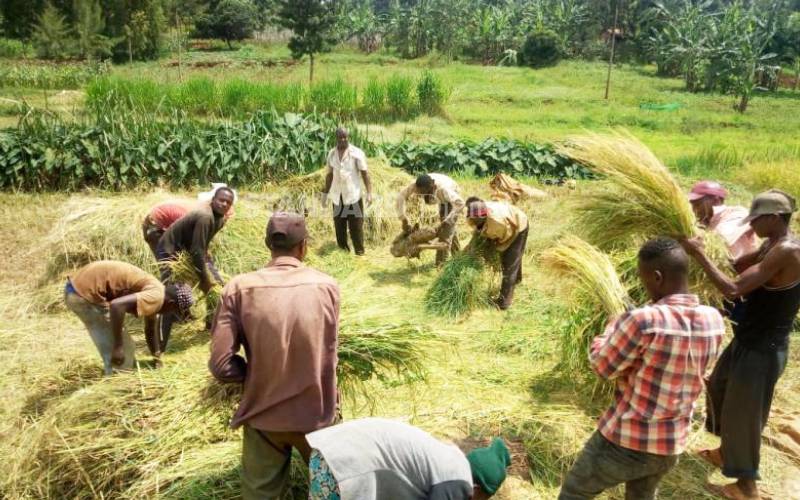×
The Standard e-Paper
Kenya’s Boldest Voice

Farmers from Kabatiro area in Kirinyaga County harvesting the hybrid rice variety AT054 in December. They recorded a bumper harvest in December. [Joseph Muchiri, Standard]
Rice production in Kenya could increase if farmers adopt an improved variety after trials at Mwea, Kirinyaga County, established it produces high yields compared to the traditional pishori.